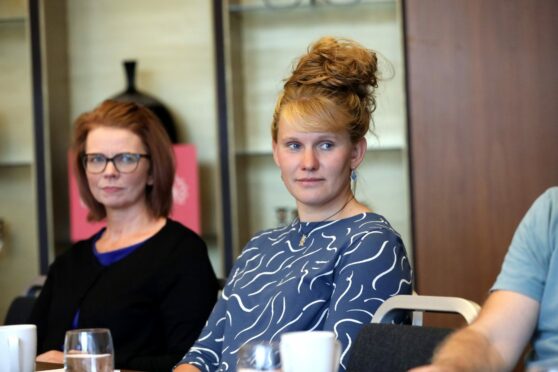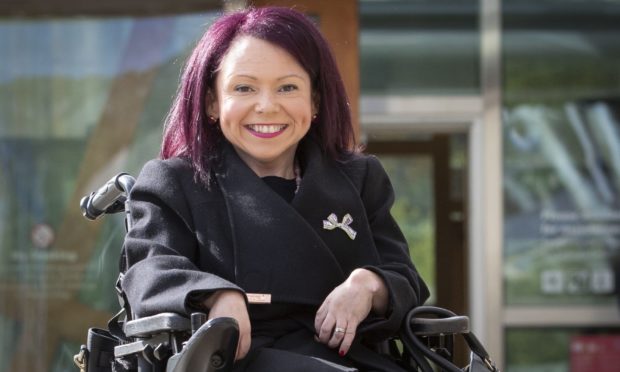Teachers at a specialist Dundee school say not enough support is available to young people with additional needs when they leave school.
The teachers from Kingspark School also warn some parents are having to drop out of work because of the lack of support and claim services that were in the city “disappeared” in the coronavirus lockdown.
They made the warning as Scottish Labour attempts to steer new legislation through Holyrood so young people with disabilities and additional support needs get more help on their way into adulthood.
Support ‘disappears’ after school
Caron Yeaman, principal teacher at Kingspark, said pupils often find it difficult to leave the additional support needs school because there are so few services available to them once they turn 18.
She said: “I would like to see more services and see more organisations working together.
“Families have full time support for all these years at school and then it just disappears.
“A few parents say they have to give up their jobs because they worked during school term time and now can’t anymore because the level of support is no longer there.”
Susan Jackson, deputy head teacher at the school, agreed and said a “whole load” of support in the city disappeared over the coronavirus pandemic.
Young people face a ‘cliff edge’
Michael Marra, Dundee-based MSP for the North East region, said young people in the city with disabilities or additional support needs face a “cliff edge” when they leave school because all the support they previously relied on is taken away.
He said he is having to deal with families struggling with this on a weekly basis.
Mr Marra added: “We know Dundee has high levels of additional support needs and disabilities because that is closely related to poverty and there is a high level of poverty in Dundee.”
He added society cannot afford to lose out on the talent of these young people who find there are barriers to getting a job or going into education after school.
Call to change legislation
Labour MSP Pam Duncan-Glancy, who made history last year by becoming the first permanent wheelchair user to be elected to the Scottish Parliament, is bringing forward plans to help better support these young people.
She hopes her proposals will force the Scottish Government to introduce a new national strategy.
Ms Duncan-Glancy also wants to introduce a minister with special responsibility for supporting disabled young people to leave school and go on to a positive destination.
Ms Duncan-Glancy said: “It’s been really helpful to come to Dundee.
“Everywhere we’ve gone we get something different but we also hear a constant theme of failure across the piece.
“There is not enough action from government and not enough support given to local authorities to deliver what is necessary.
“We are ending up with a situation where we are failing disabled people across the country.
She added: “Disabled people are innovative by design so failing to harness that potential means we are failing the country, not just disabled people.”
A spokesperson for the Scottish Government said it recognises the importance of preparing young disabled people for life beyond school.
They said: “Local authorities have duties under the additional support for learning act to plan for and support young peoples’ transition from school.
“The Scottish Government is implementing a range of actions to improve the experience of transitions for disabled young people by investing in policies like the young person’s guarantee and the independent Living Fund Scotland’s transition fund.
“We are committed to introducing Scotland’s first national transitions to adulthood strategy in this parliamentary term to support our disabled young people as they make the transition to adult life.”


